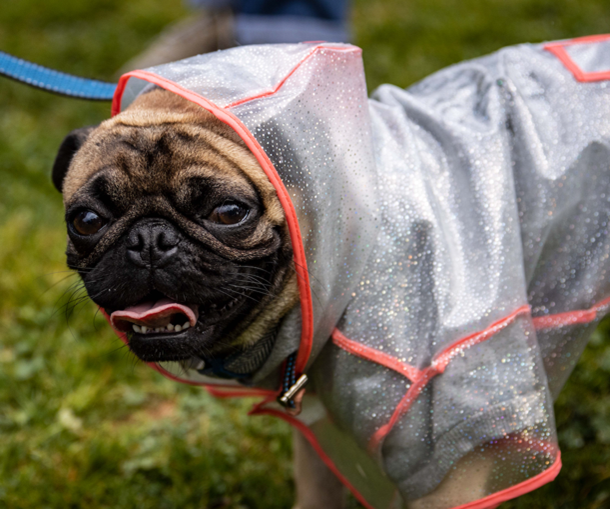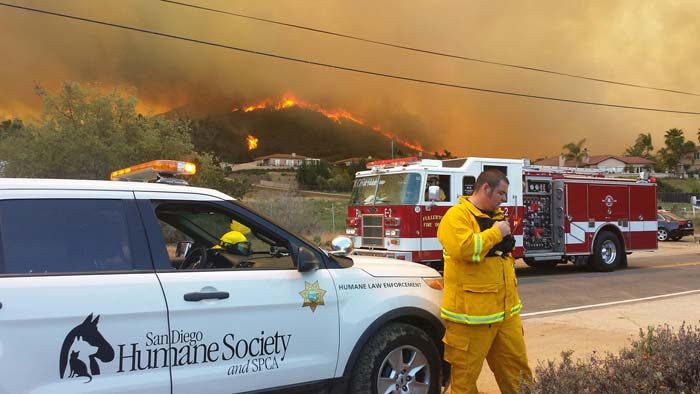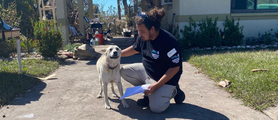Animal People:
Dr. Fran Deutsch and Dr. Carole Leland
Educators and Philanthropists
Dr. Francine Deutsch and Dr. Carole Leland share a love of animals and philanthropy, which they have combined to create a legacy of compassion for pet families in need. By endowing the Dr. Francine Deutsch & Dr. Carole Leland Community Services Veterinarian at San Diego Humane Society, this couple has helped launch a significant new effort to provide essential veterinary care to families in our community. In our Animal People interview, Fran and Carole discuss making an impact, no matter your means, and the incredible dogs who have shaped their lives.
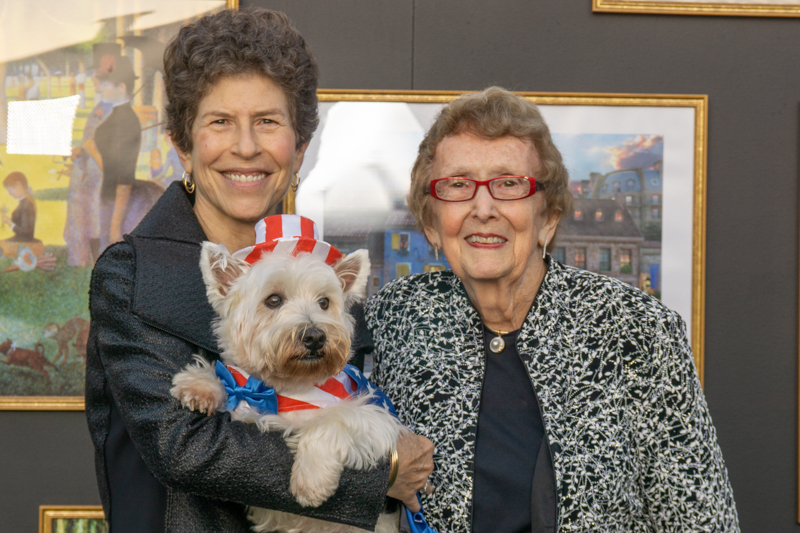
Why is philanthropy such an important value in your lives?
Fran: For me, it all starts with 25 cents. My great-grandfather would give the children in my family a quarter every Sunday for allowance. When I was about 4 years old, I started asking him instead for two dimes and a nickel. I would save a dime, give away a dime and keep a nickel. This translated to how I have run finances my whole life. There are essentially three pots: a third saved, a third spent and a third given away. You plan the giving away so you can see it and enjoy it. It lets you see the satisfaction of the impact while you’re still here. My first salary as a teacher was just $9,200 for the year.
Carole: We realize that we’ve been fortunate, because we’ve been able to give our dogs things like daycare and training. We know others may not have that opportunity, and we want to give that to them.
F: It was so perfect for us to endow the Deutsch-Leland Community Services Veterinarian. Both Carole and I are former professors, so we buy into the concept of endowed positions and we certainly buy into San Diego Humane Society as an organization. This endowed position and our other legacy gifts — Westie’s Walk and Sonata’s Way [adoption areas at San Diego Humane Society] and Bravo Boy’s Agility Yard at the new Behavior Center — all came about on teacher’s salaries!
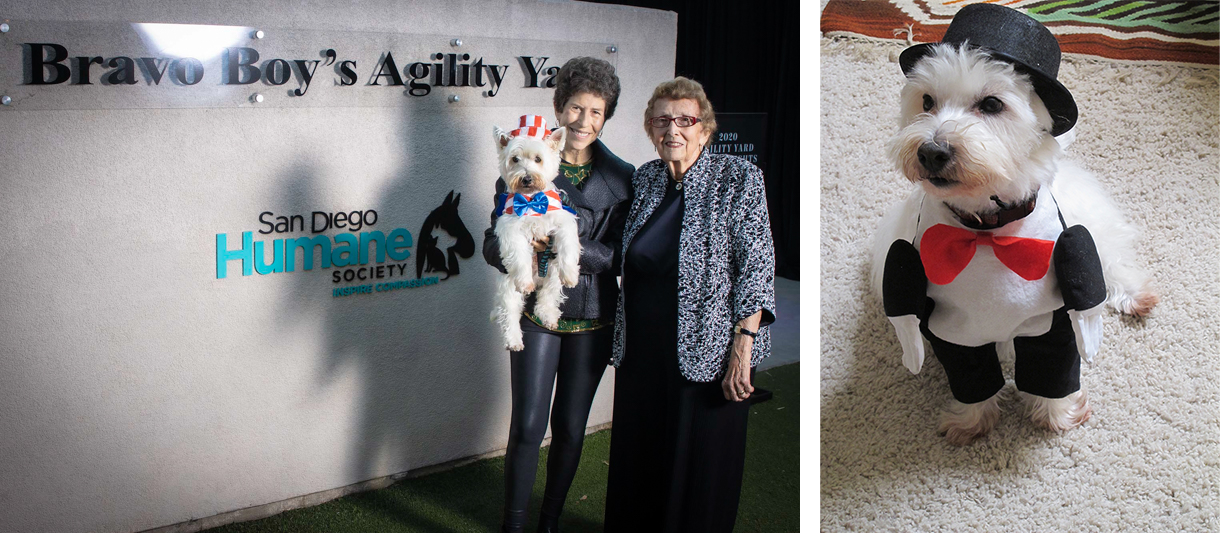
Why do you think it’s important to support pet owners throughout the community?
C: It gives people a sense of greater confidence and security in taking care of their own families and their own pets. Building a sense of responsibility and ability for people to care for their pets is very important to what the philosophy of San Diego Humane Society has become. And we see this throughout the leadership at the organization, not just at the top.
F: I agree. We have friends who say, “How can you give so much to animals? Look at all the things people need.” You can judge people by how they take care of their animals, and if we can start by having those values shift, then I think we’ll have a bigger impact on people. The concept of being able to give good, quality services to individuals when they need them is what it’s all about. It’s extending to give stronger support to animals in the community. It all comes together as a wonderfully delicious platform for us. It’s also great fun to provide the first endowed position and help get the program off the ground.
Animals are a necessity, and they deserve proper care. We started our support with the [former] PAWS program because that’s what we believe in. Before that, I would buy pet food and take it to those in need. The Community Services Veterinarian position will elevate healthcare in a whole community by caring for animals and helping people keep them. Everything came together to create an impact, and it feels sustainable when you endow something. With an endowment, you know that it can really live beyond you. We also like this position because it allows San Diego Humane Society to be a leader in the field. It’s really playing that leadership role, along with the Behavior Center and Project Wildlife. I like that the organization is so visionary. What San Diego Humane Society does and how it’s run is very important to us.
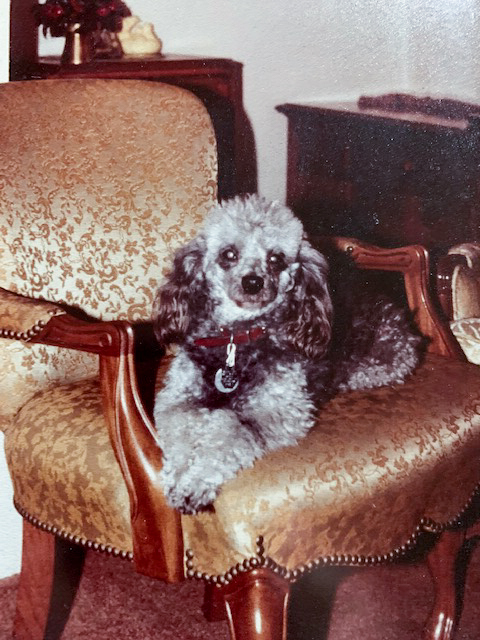
How have animals played a significant role in the life you’ve built together?
F: It started with Shakespeare, a gray and black little poodle. When I got him from a pet store, he looked so weak, little and frail — he needed help. He was so sick that you could open his mouth and see worms. It took a whole year to get him healthy but he made it. He was the pet I had when I first met Carole, and he traveled cross-country with us from the East Coast to the West Coast.
C: Shakespeare and I became friends, but he absolutely adored Fran. He’d look out the window and wait for her to come home at night. He was such a gentleman and a wonderful, wonderful dog.
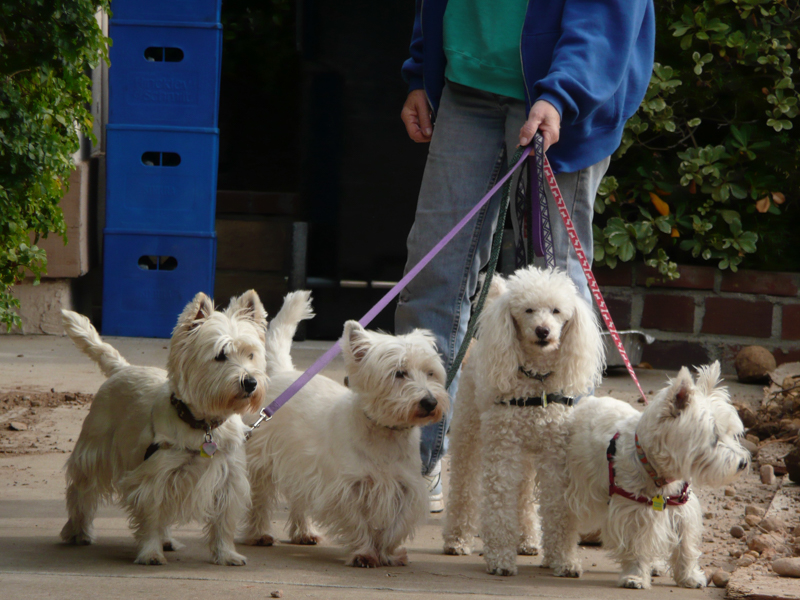
F: He was quite the devoted kid, and we lost him to a bad stomach cancer around age 13. Our other kids have been, in order, Andante (a bichon frisé), Allegro (a miniature poodle), Presto (our first Westie, found abandoned and injured in a parking lot), Encore (a poodle), Bravo (a Westie) and Sonata (a former show dog poodle). They all had music-themed names after Shakespeare. Now we have Duet and Tempo (two Westies), Mezzo (a rescue toy poodle from No Wagging Tails Left Behind) and Jazz (a rescue from SDHS). Out of all the animals we’ve ever had, Sonata became Carole’s dog.
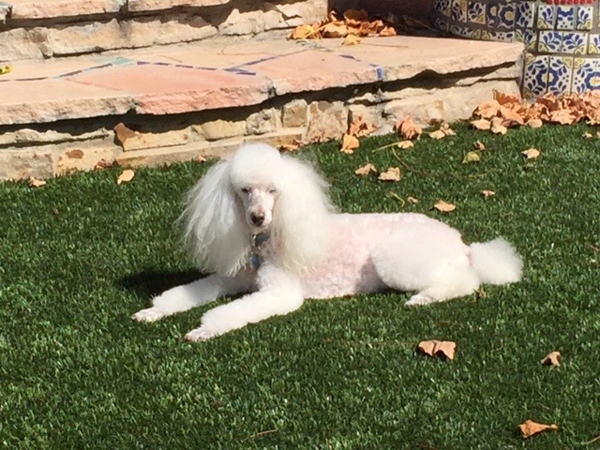
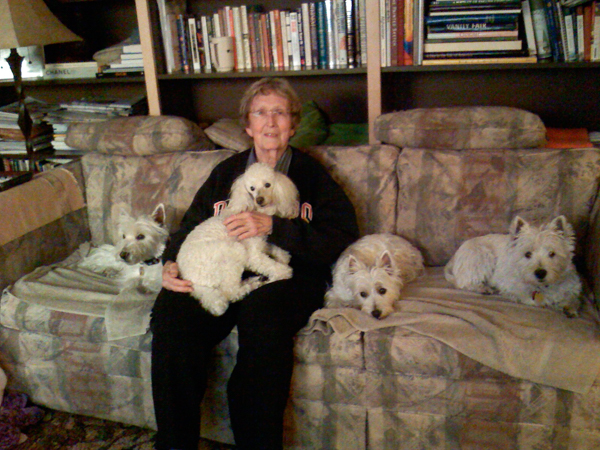
C: I get teary just thinking about her. Sonata was an incredible dog and could almost anticipate what you were feeling or doing. Fortunately, I had a large enough lap that she could curl up, and she did for most of her life. I always thought of her as a soul mate — she was really very special. That’s why we chose to name the hall for her at San Diego Humane Society: Sonata’s Way. Losing her was really very difficult.
Each of our dogs has adored Fran because she’s been their major caretaker, but there are a few that I’ve had a stronger relationship with. We respect each of our dogs for who they are and each of them is different.
F: I always try to find work that the kids like, and try to make their lives as broad and big as possible. Bravo, for example, was the agility champion, and that’s why we named Bravo Boy’s Agility Yard after him at San Diego Humane Society. That represented who he was.
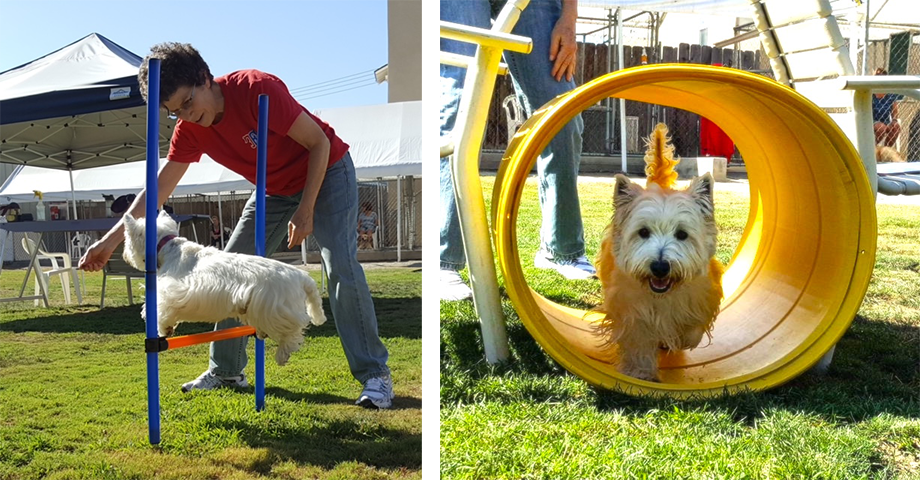
Your lives have been full of some incredibly special animals. What do these relationships mean to you?
F: My entire life, with the exception of Carole, is really all about the dogs. If I could have 10 or 15, I probably would and would just figure out how to care for them. We’ve had up to five dogs at a time, and now with two older dogs, the care is different. Watching their unconditional love and uniqueness as beings blossom is just incredible. It’s like watching a child discover. I just find it absolutely joyful.
C: There is a tremendous sense of comfort that the dogs bring to me. They are added members of the family and our time with them is terribly satisfying. They are just as intriguing as another person — they have their own habits, style and way of being. I find them so intellectually captivating. They bring love into our lives that is irreplaceable.
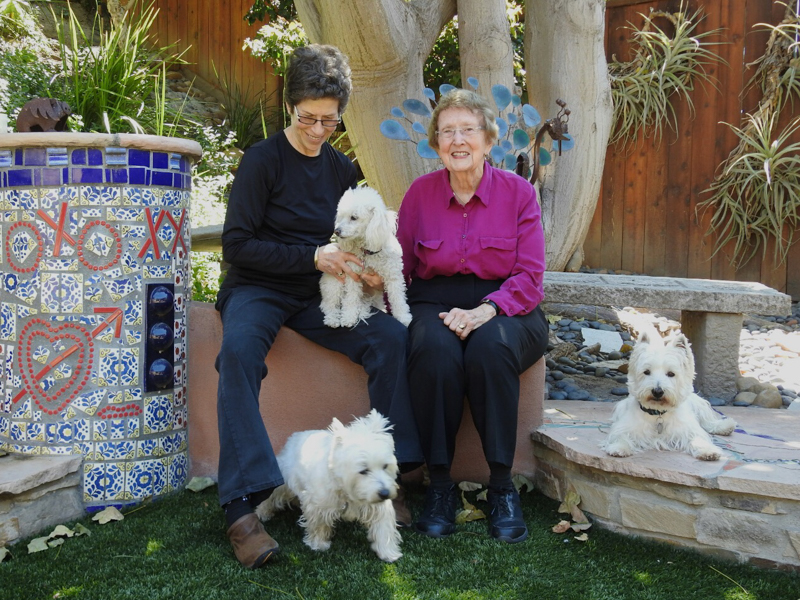
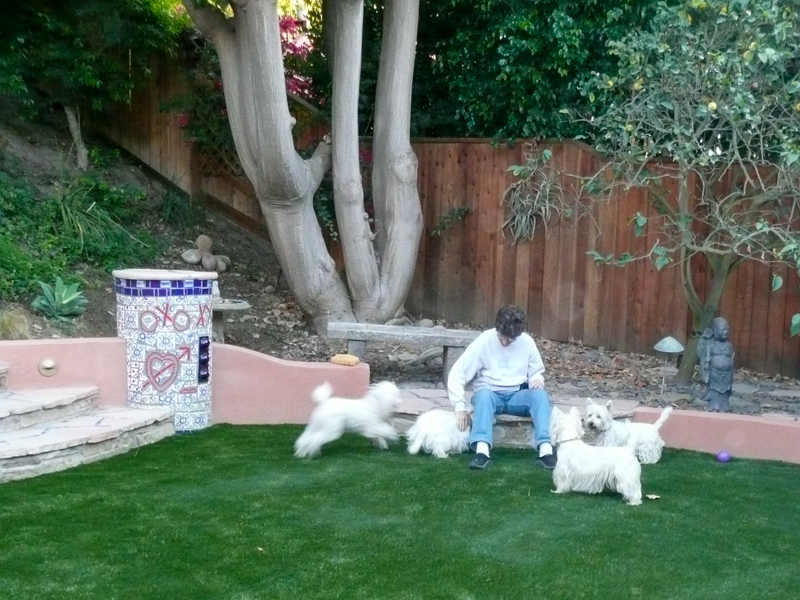
What lessons have you learned from your animals?
F: A dog can teach you everything about life, you just have to pay attention. They are a reminder to be in the present. If something hurts and they’re in pain, you know about it. As soon as it’s better, they move on, and they don’t worry about the future.
C: They’ve made me more sensitive to animals elsewhere and more caring about how animals are cared for. I now pay attention, where I may not have paid attention to these issues before. We have an enormous number of causes that we could give money to, but the dogs have opened up a world where I know the need is so great. My world of caring has been enlarged and they’ve changed the way I think. I thank Fran for that. There’s nothing more important in her world than taking care of animals everywhere.
F: Everywhere! San Diego Humane Society is the highest on the list of where we give, but there are a whole host of other organizations, such as Greater Good, Lionel’s Legacy, Greyhound Adoption Center and Soi Dog Foundation, who are doing so much, and any donation still helps them. I feel very strongly that I’m both a guardian and custodian for animals. This is my calling and I feel grateful that it can be done in a larger way. I feel it’s a must, and I hope that resonates with some other people.
My animals make me feel fulfilled. They’re just terrific, and I love how they help each other, too. One of them will be trying to get in a crate and it’s not working. Tempo will see that and he’ll go over and push open the door with his paw and lets the dog go in. And in the future, that dog has now learned to open the crate. I just marvel at their interactions. I could never give enough to express my gratitude for what they give in a lifetime. I would wish for every person to know the wonderful, joyful feeling that they provide. The dogs give far more than we could ever give them.

What message do you have for others who want to make an impact?
F: Carole and I are both cancer survivors. It’s been 21 years since my lung cancer and about 15 years since Carole’s breast cancer. We really just have today, and, if you want to do something meaningful, you just have to get off your tail and do it. That’s what those events have taught us.
C: I think it’s a matter of helping people to look at themselves and their own purpose in life. At San Diego Humane Society, you can’t help but realize that there’s purpose when you visit and see people, even just out walking the dogs. We’re inspired by the work.
F: We’ve been in San Diego for 41 years, and we’ve seen San Diego Humane Society become such a dramatically different organization because of the people who are hired, how they work together, the values and what they represent. It’s marvelous to see the growth and be part of it.
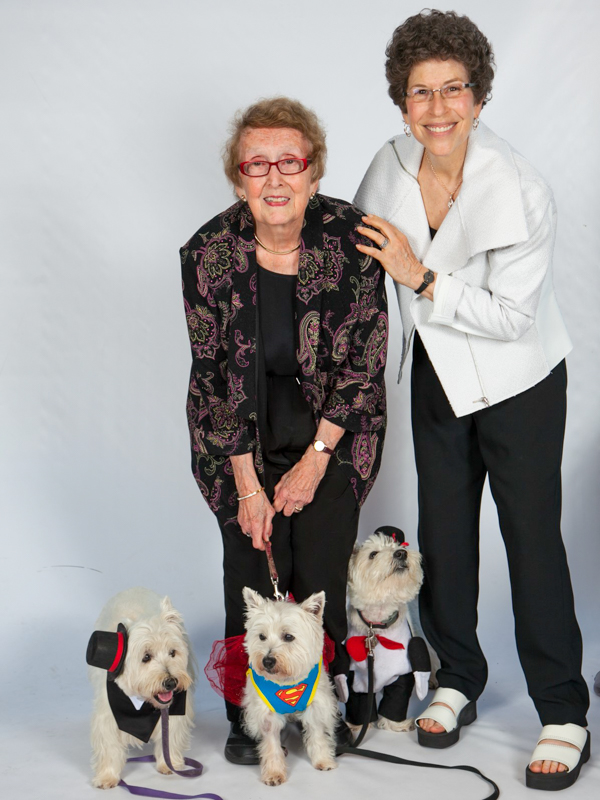
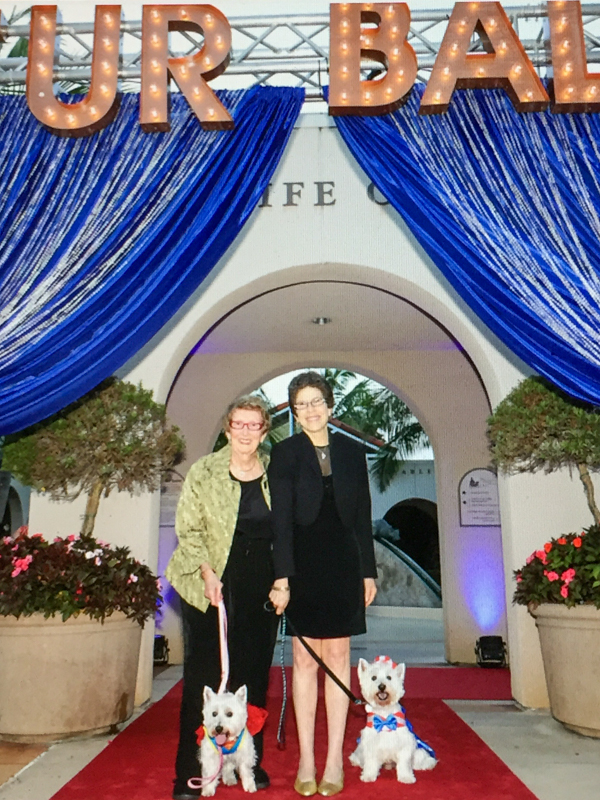
…
Are you a veterinarian with a passion for expanding access to medical care for pets? Apply to join our team as the Deutsch-Leland Community Services Veterinarian today!
Published: February 14, 2022



